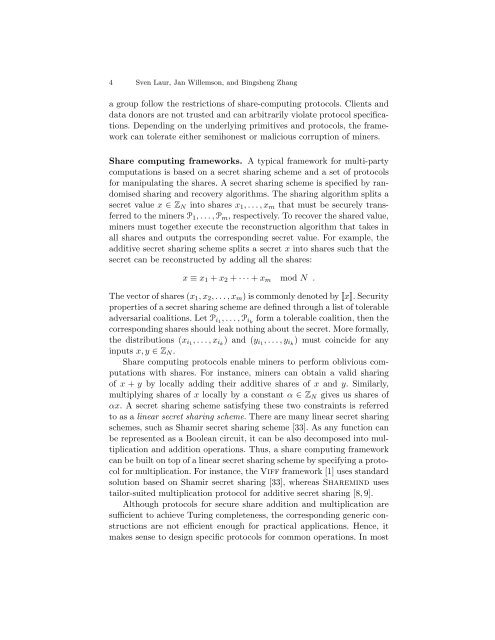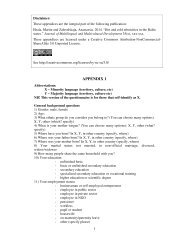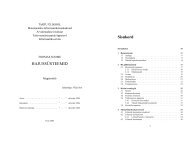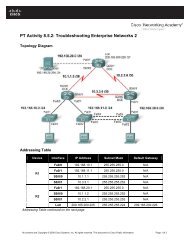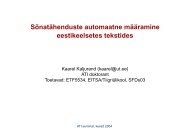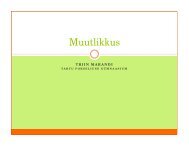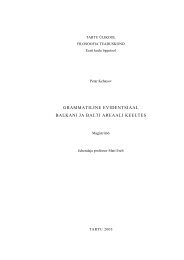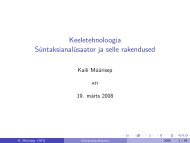Round-efficient Oblivious Database Manipulation
Round-efficient Oblivious Database Manipulation
Round-efficient Oblivious Database Manipulation
You also want an ePaper? Increase the reach of your titles
YUMPU automatically turns print PDFs into web optimized ePapers that Google loves.
4 Sven Laur, Jan Willemson, and Bingsheng Zhang<br />
a group follow the restrictions of share-computing protocols. Clients and<br />
data donors are not trusted and can arbitrarily violate protocol specifications.<br />
Depending on the underlying primitives and protocols, the framework<br />
can tolerate either semihonest or malicious corruption of miners.<br />
Share computing frameworks. A typical framework for multi-party<br />
computations is based on a secret sharing scheme and a set of protocols<br />
for manipulating the shares. A secret sharing scheme is specified by randomised<br />
sharing and recovery algorithms. The sharing algorithm splits a<br />
secret value x ∈ ZN into shares x1, . . . , xm that must be securely transferred<br />
to the miners P1, . . . , Pm, respectively. To recover the shared value,<br />
miners must together execute the reconstruction algorithm that takes in<br />
all shares and outputs the corresponding secret value. For example, the<br />
additive secret sharing scheme splits a secret x into shares such that the<br />
secret can be reconstructed by adding all the shares:<br />
x ≡ x1 + x2 + · · · + xm mod N .<br />
The vector of shares (x1, x2, . . . , xm) is commonly denoted by [[x]. Security<br />
properties of a secret sharing scheme are defined through a list of tolerable<br />
adversarial coalitions. Let Pi1 , . . . , Pik form a tolerable coalition, then the<br />
corresponding shares should leak nothing about the secret. More formally,<br />
the distributions (xi1 , . . . , xik ) and (yi1 , . . . , yik ) must coincide for any<br />
inputs x, y ∈ ZN.<br />
Share computing protocols enable miners to perform oblivious computations<br />
with shares. For instance, miners can obtain a valid sharing<br />
of x + y by locally adding their additive shares of x and y. Similarly,<br />
multiplying shares of x locally by a constant α ∈ ZN gives us shares of<br />
αx. A secret sharing scheme satisfying these two constraints is referred<br />
to as a linear secret sharing scheme. There are many linear secret sharing<br />
schemes, such as Shamir secret sharing scheme [33]. As any function can<br />
be represented as a Boolean circuit, it can be also decomposed into multiplication<br />
and addition operations. Thus, a share computing framework<br />
can be built on top of a linear secret sharing scheme by specifying a protocol<br />
for multiplication. For instance, the Viff framework [1] uses standard<br />
solution based on Shamir secret sharing [33], whereas Sharemind uses<br />
tailor-suited multiplication protocol for additive secret sharing [8, 9].<br />
Although protocols for secure share addition and multiplication are<br />
sufficient to achieve Turing completeness, the corresponding generic constructions<br />
are not <strong>efficient</strong> enough for practical applications. Hence, it<br />
makes sense to design specific protocols for common operations. In most


